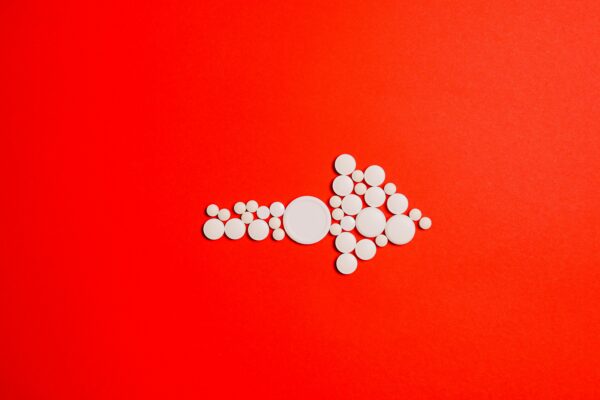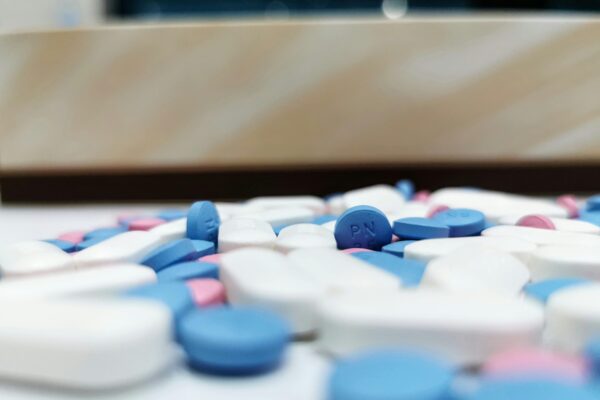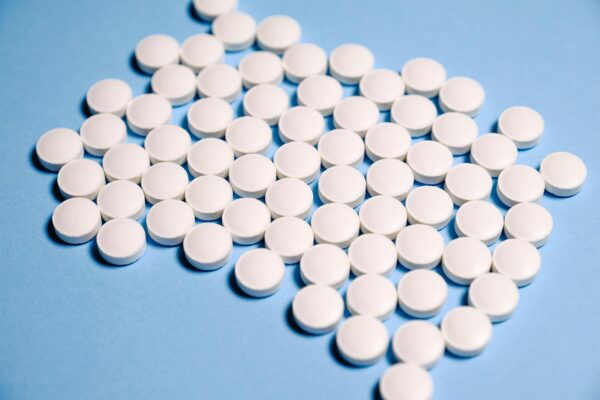Erectile dysfunction (ED) is a common issue that affects many men at some point in their lives. While it might feel like a taboo subject, understanding the causes of ED is crucial for finding effective treatments and regaining confidence. This article delves into the various causes of erectile dysfunction, from physical to psychological, and explores ways to manage and treat the condition.
- What is Erectile Dysfunction?
- Physical Causes of Erectile Dysfunction
- Psychological Causes of Erectile Dysfunction
- Lifestyle Factors Contributing to ED
- Age and Erectile Dysfunction
- Preventive Measures and Lifestyle Changes
- Medical Treatments for Erectile Dysfunction
- When to See a Doctor
- Conclusion
- FAQs: Erectile Dysfunction Causes
What is Erectile Dysfunction?
Erectile dysfunction is the inability to achieve or maintain an erection firm enough for sexual intercourse. While occasional difficulties with erections are not uncommon, ED is diagnosed when the problem is persistent and affects a man’s quality of life. Contrary to some beliefs, ED is not solely a condition of older men; it can affect men of all ages. Understanding this can help reduce stigma and encourage those affected to seek help.
Physical Causes of Erectile Dysfunction
Several physical factors can lead to ED, many of which are related to overall health and wellness.
Cardiovascular Issues
Heart health plays a significant role in erectile function. Conditions like high blood pressure, atherosclerosis (hardening of the arteries), and high cholesterol can impede blood flow to the penis, making it difficult to achieve an erection. Since the arteries in the penis are narrower than those in other parts of the body, they can be affected by cardiovascular issues earlier, sometimes serving as an early warning sign for more severe heart problems.
Diabetes
Diabetes is a major risk factor for ED because it can cause damage to blood vessels and nerves that control erection. Men with diabetes are two to three times more likely to experience ED. Managing blood sugar levels and maintaining a healthy lifestyle can help reduce the impact of diabetes on sexual health.
Hormonal Imbalances
Hormones like testosterone play a crucial role in sexual function. Low levels of testosterone, also known as hypogonadism, can result in decreased libido and ED. Other hormonal disorders, such as thyroid conditions, can also affect erectile function. It’s essential to consult a healthcare provider to diagnose and treat any underlying hormonal issues.
Neurological Disorders
Neurological conditions, including Parkinson’s disease, multiple sclerosis, and stroke, can disrupt the nerve signals necessary for an erection. Injuries to the spinal cord or pelvic area can also damage nerves and blood vessels, contributing to ED.
Medications
Certain medications can interfere with sexual function. Common culprits include drugs for high blood pressure, depression, and anxiety. If you suspect your medication is affecting your ability to maintain an erection, consult your doctor before making any changes.
Substance Abuse
Excessive use of alcohol and recreational drugs can impair erectile function. Alcohol is a depressant that affects the central nervous system and can reduce sexual desire and performance. Long-term substance abuse can lead to chronic health conditions that further contribute to ED.
Psychological Causes of Erectile Dysfunction
While physical factors are often the primary cause of ED, psychological factors can also play a significant role.
Stress and Anxiety
Stress and anxiety are major contributors to erectile dysfunction. Performance anxiety, in particular, can create a vicious cycle where worry about sexual performance leads to ED, which then increases anxiety. Reducing stress through relaxation techniques, exercise, and communication with a partner can help alleviate symptoms.
Depression
Depression can diminish sexual desire and lead to erectile dysfunction. The condition itself, as well as some antidepressants, can impact libido and the ability to maintain an erection. Therapy, lifestyle changes, and medication adjustments can help improve both depression and ED.
Relationship Issues
Emotional intimacy and communication are vital for a healthy sexual relationship. Relationship issues, whether they stem from ongoing conflicts, lack of communication, or emotional disconnect, can contribute to erectile dysfunction. Couples therapy can be beneficial in addressing these problems.
Lifestyle Factors Contributing to ED
Certain lifestyle choices can increase the risk of ED. Understanding and modifying these factors can improve sexual health.
Obesity
Excess weight can affect hormonal balance, cardiovascular health, and overall energy levels, all of which are important for sexual function. Losing weight through diet and exercise can improve erectile function and overall well-being.
Lack of Exercise
Regular physical activity improves circulation, reduces stress, and enhances overall health, all of which are beneficial for erectile function. Even moderate exercise, such as walking or cycling, can make a significant difference.
Smoking
Smoking negatively affects blood flow and is a major risk factor for cardiovascular disease, which is closely linked to ED. Quitting smoking can improve blood flow and enhance erectile function.
Age and Erectile Dysfunction
Aging is a natural factor that can contribute to erectile dysfunction due to changes in hormones, muscle mass, and blood flow. However, ED is not an inevitable part of aging, and many older men continue to have satisfying sex lives. It’s essential to distinguish between age-related changes and other causes of ED, which may require medical attention.
Preventive Measures and Lifestyle Changes
While some causes of ED are beyond your control, many are related to lifestyle and health habits. Here are some proactive steps you can take to reduce the risk of ED.
Healthy Diet
A diet rich in fruits, vegetables, whole grains, and lean proteins can improve cardiovascular health and blood flow, reducing the risk of ED. Foods high in antioxidants, like berries and leafy greens, are particularly beneficial.
Regular Exercise
Exercise is one of the most effective ways to improve your health and reduce the risk of ED. It helps maintain a healthy weight, reduces stress, and improves cardiovascular function. Even small changes, like taking the stairs instead of the elevator, can make a difference.
Avoiding Smoking and Substance Abuse
Quitting smoking and reducing alcohol and drug use can significantly improve erectile function and overall health. There are many resources available, including support groups and counseling, to help make these changes.
Managing Stress
Stress management techniques, such as mindfulness, meditation, and yoga, can help reduce anxiety and improve erectile function. Finding healthy ways to cope with stress is vital for maintaining both mental and physical health.
Medical Treatments for Erectile Dysfunction
For some men, lifestyle changes and addressing underlying causes may not be enough. Medical treatments can offer effective solutions.
Oral Medications
Phosphodiesterase type 5 inhibitors (PDE5 inhibitors), such as sildenafil (Viagra), tadalafil (Cialis), and vardenafil (Levitra), are commonly prescribed for ED. These medications help increase blood flow to the penis, making it easier to achieve and maintain an erection.
Therapy and Counseling
Psychotherapy or counseling can be beneficial, especially when psychological factors are contributing to ED. Addressing issues such as anxiety, depression, or relationship problems can improve sexual function.
Medical Procedures and Devices
In some cases, medical procedures or devices may be necessary. Options include vacuum erection devices, penile injections, or implants. These treatments are usually considered when other methods have not been successful.
When to See a Doctor
If you experience persistent erectile dysfunction, it’s important to consult a healthcare provider. ED can be a symptom of underlying health conditions that need to be addressed. Early diagnosis and treatment can improve not only sexual health but overall well-being.
Conclusion
Erectile dysfunction is a complex condition with many potential causes, ranging from physical health issues to psychological factors and lifestyle choices. Understanding these causes is the first step in finding effective treatments and improving quality of life. Remember, ED is a common issue, and help is available. Don’t hesitate to reach out to a healthcare professional for advice and support.
Testosterone and Erectile Dysfunction: Addressing Performance Issues in Men
Here’s the rewritten FAQ section in the requested format:
FAQs: Erectile Dysfunction Causes
Question: What is the most common cause of erectile dysfunction?
The most common cause of erectile dysfunction is cardiovascular disease, which affects blood flow to the penis. Other common causes include diabetes, hormonal imbalances, and psychological factors.
Question: Can erectile dysfunction be reversed?
In many cases, erectile dysfunction can be reversed by addressing the underlying causes, such as making lifestyle changes, treating health conditions, or managing stress and anxiety.
Question: How do I know if my ED is physical or psychological?
It can be challenging to determine the exact cause of ED without professional help. However, if you experience erections during sleep or upon waking, the cause is more likely psychological. Consulting with a healthcare provider can provide a more accurate diagnosis.
Question: Are there natural remedies for erectile dysfunction?
Some natural remedies, like a healthy diet, regular exercise, quitting smoking, and reducing alcohol intake, can help improve erectile function. However, it’s essential to consult with a healthcare provider before trying any new treatment.
Question: How does ED affect relationships?
Erectile dysfunction can strain relationships due to stress, anxiety, and a lack of communication. It’s crucial for partners to communicate openly and seek professional help if needed to manage the emotional and psychological aspects of ED.
Vaping and Erectile Dysfunction: The Shocking Connection Revealed
Alcohol and Erectile Dysfunction: The Brutal Truth You Need to Know





